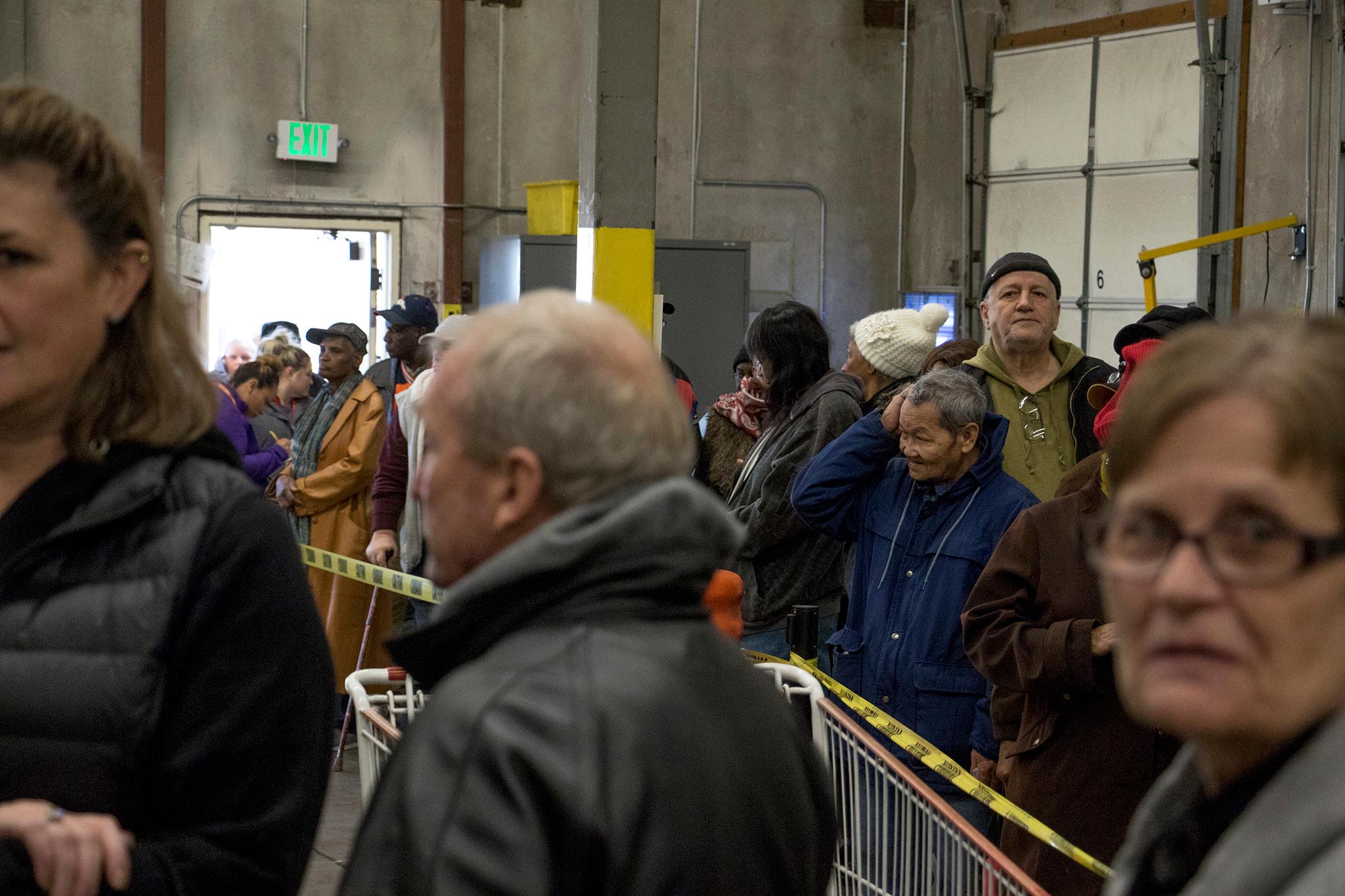The floor of a concrete warehouse on the eastern edge of the city gives Food Bank of the Rockies volunteer Debbie Anaya-Pancetti a vantage point on hunger among older Denverites.
"I think the need is greater," Anaya-Pancetti said, comparing the current situation to 2004, when she first started spending one Saturday morning a month helping distribute boxes of free food to seniors.
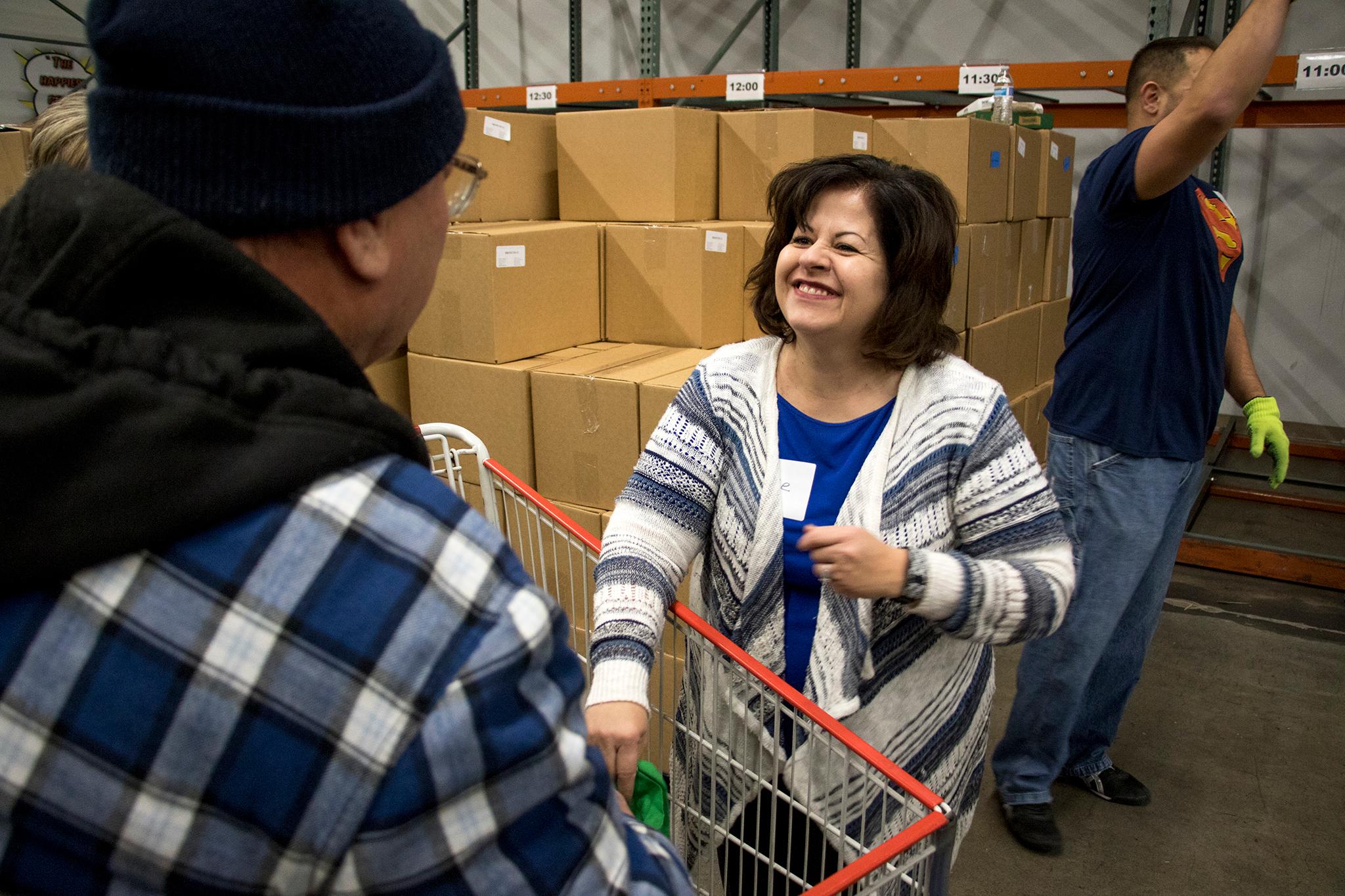
As they age, hunger is booming among baby boomers. Feeding America, a nonprofit that links food banks and pantries across the country and conducts research on hunger and poverty, estimates that the rate of hunger among Americans aged 60 and older has increased by 45 percent since 2001. They are people whose savings and retirement funds were hit hard by the Great Recession. Their income is not increasing as the economy recovers and the cost of living rises. Feeding America forecasts that the number of food-insecure seniors may grow to more than 8 million by 2050.
In our state, the nonprofit Hunger Free Colorado reports that an estimated that 1 in 10 older adults have, at times, been unsure of when or where they will next eat a meal. Hunger Free Colorado works to increase access to nutritious food with, among other programs, a hotline to help connect those in need to local pantries and to federal food aid programs.
With housing prices in Denver rising fast, Shelly Hines, director of the Family Safety Net department at Jewish Family Service, has had older people come to tell her their rents are going up $200 or $300. Many are getting by on less than $800 a month in social security payments.
"If you're maxed out, even a $50 increase can throw you off," Hines said.
When faced with rising costs, people of all ages cut back where they can. That often means food. Seniors may have health problems younger people do not and they are likely to put paying for medicine ahead of paying for food, added Gabriel Moe-Lobeda, who coordinates the Jewish Family Service food pantry.
Nationwide, only 42 percent of eligible seniors are getting Supplemental Nutrition Assistance Program funds, according to Feeding America. Applying for SNAP can require an intimidating amount to time and paperwork, acknowledged Ellie Agar, a spokeswoman for Hunger Free Colorado. Seniors who see that the minimum SNAP allowance is $15 a month may not think it's worth the trouble to apply, not realizing that showing proof of medical and other expenses can increase the payments, Agar said. Hunger Free food navigators have helped seniors get an average of $94 in monthly SNAP payments, she said.
Transportation -- whether to the grocery store, food bank or to a SNAP application interview -- can be a barrier for people who may no longer be able or willing to drive, Agar said. Hunger Free can also direct seniors to organizations like Denver Food Rescue that offer affordable grocery deliveries.
Seeking help is too often a last resort.
"There's so much negative conversation around people who need help," said Hines of Jewish Family Service. "That conversation around, 'You should be taking care of yourself. You should have planned better.' People take that to heart.
"When you come to a food pantry everyone knows you need food. I think that's very hard for seniors especially. You never expect to be in that situation You've worked hard your whole life. You've donated. You've volunteered. And now it's turned around and you're the one in need."
Children may not live close enough to be able to see that aid is needed.
"Lots of people, seniors, don't have family support in the area any more," Hines said. "Who wants to tell their kids, 'I don't have enough food to eat'?"
The Jewish Family Service pantry is among many that try to remove some of the perceived stigma by restoring a sense of independence. The pantry, open three days a week and one evening a month in Hampden, is set up like a corner store, complete with small carts. "Shoppers" of all ages can browse and take what they want for free. Seniors are about 20 percent of the 1,000 people -- from all over the world and from all faiths -- served every month. The only criteria is that participants earn no more than 200 percent of the federal poverty line.
"We just want people to have enough food," Hines said.
In addition to access to the food pantry, seniors can come to the Jewish Family Service office to pick up a box of canned vegetables, bottles of fruit juice, jars of peanut butter, blocks of cheese and other items supplied under USDA's Commodity Supplemental Food Program, which is separate from SNAP. Jewish Family Service regularly distributes 10 to 25 CSFP boxes that have been dropped of by Food Bank of the Rockies. Working with Jewish Family Service and other organisations allows the food bank to reach many corners of the city with the food supplied by USDA, said Janie Gianotsos, the bank's director of marketing and community relations.
Food Bank of the Rockies volunteer Anaya-Pancetti, who originally rallied friends, family and Lockheed Martin colleagues to help distribute food to seniors as a way to celebrate her birthday, includes messages about the program in her church newsletter. In flyers it drops off at senior centers, libraries and medical offices, the food bank notes the requirements for the Commodity Supplemental Food Program are simple. Recipients must be at least 60 years old, reside in Colorado and, if they are living alone, earn no more than about $1,300 a month. The income qualifications vary according to family size.
"We want to make sure that seniors know about it," Gianotsos said.
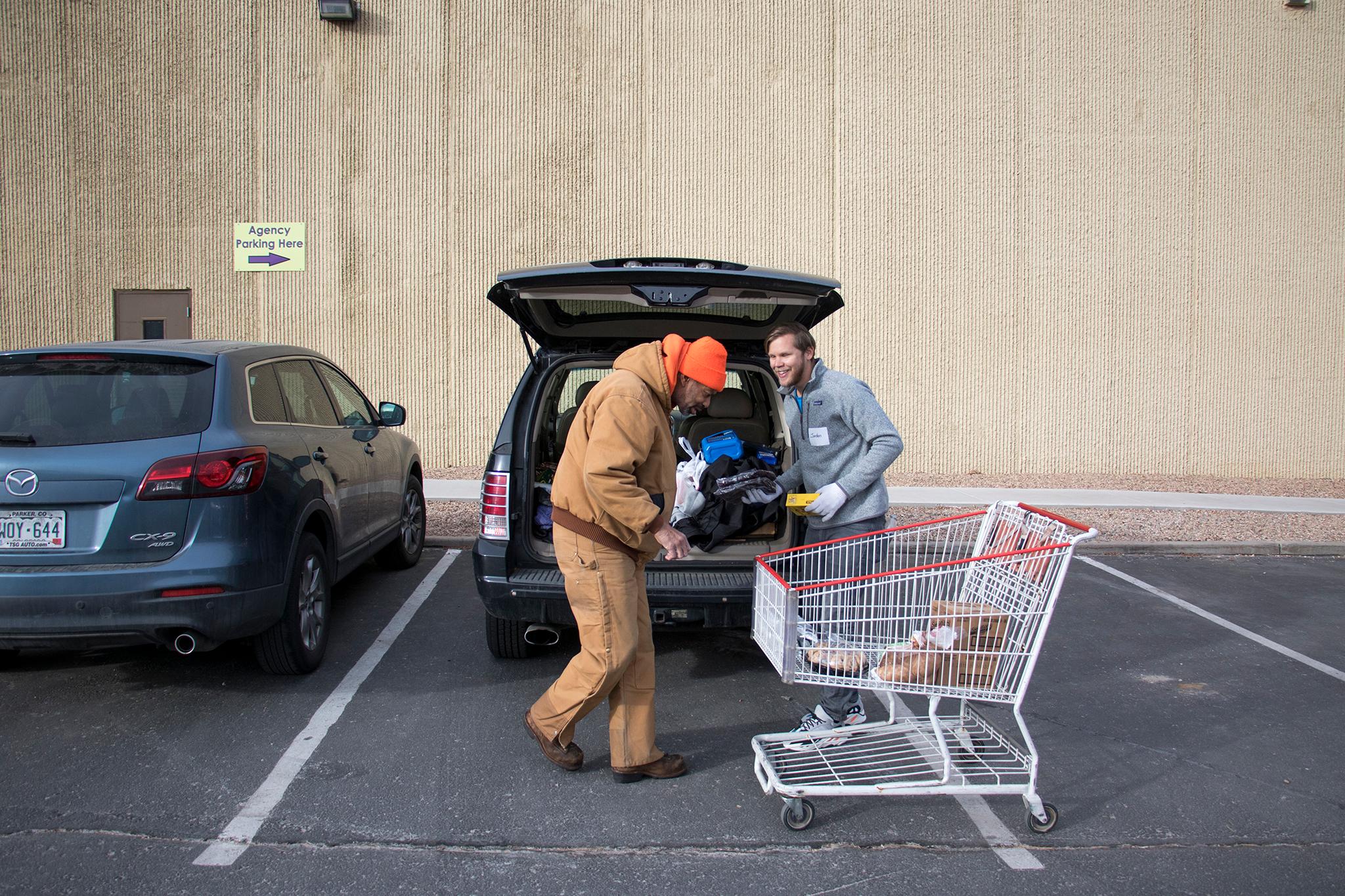
Riley Askew first heard about the Commodity Supplemental Food Program when he was checking a list of food resources at a rec center. Now 65, he's been coming regularly to the food bank's monthly distribution at its warehouse in Northeast Denver since he was 60. Some 500 boxes are handed out every month at the warehouse.
"Some people don't want to deal with it," he said. "They figure, 'hand-out." I tell them, 'You better get it. you better get it while you can.' It helps. It gets you to the next month or so."
Joannie Corsey, a 62-year-old who was chatting with Askew as she waited in the line for her box, said she tells her neighbors about the program.
"I'd be willing to go pick people up to tell you the truth," she said. "It's nice. It really helps us out."
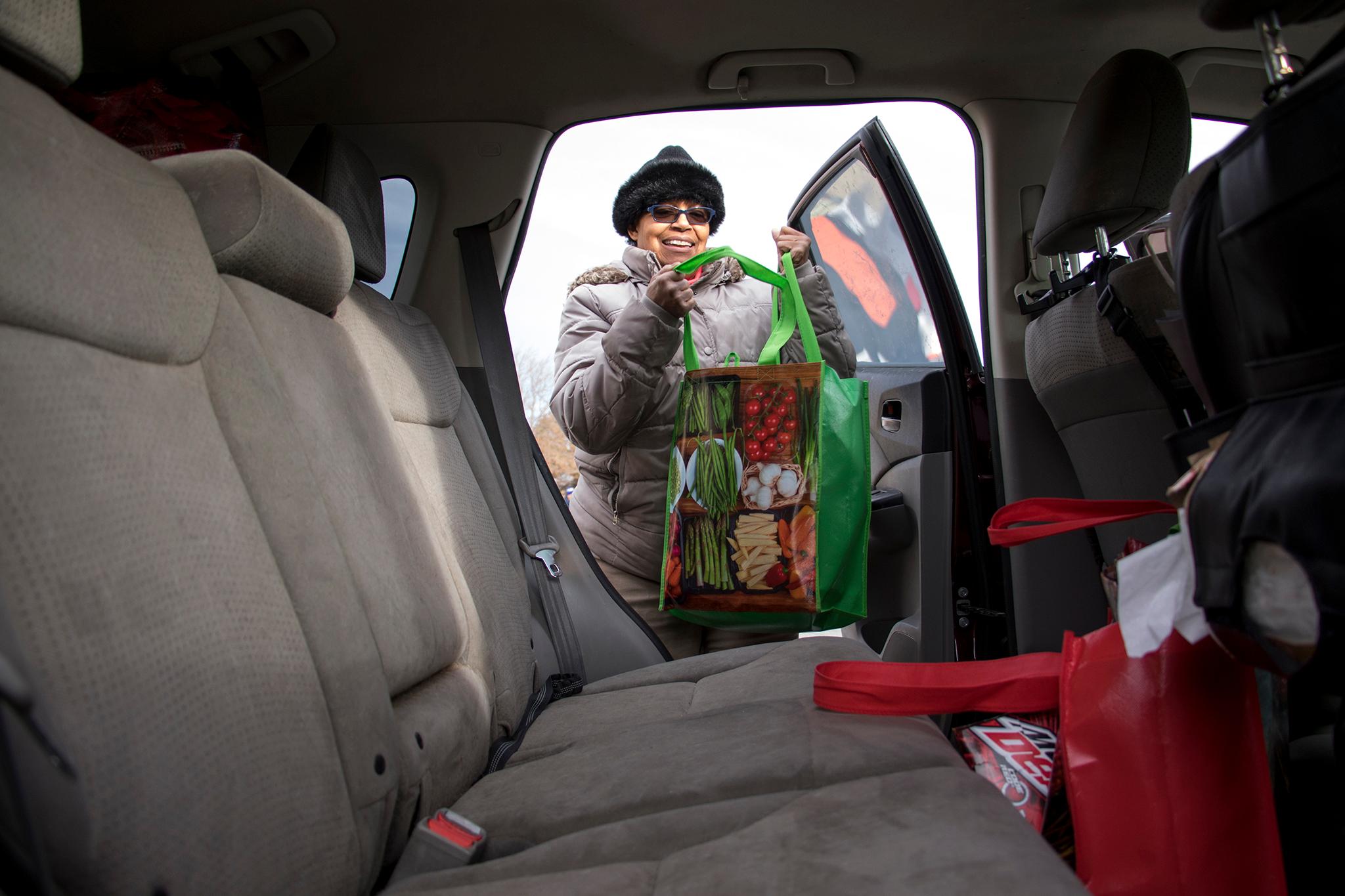
Volunteers pack and distribute the boxes as well as additional food items, some from USDA and some fresh produce and other items from food bank stores. They also help recipients steer carts and load vehicles.
Pat Rucker is a serial volunteer. In addition to Food Bank of the Rockies, the Children's Hospital medical records staffer gives time to the Denver Rescue Mission and Ronald McDonald House among others.
"I'm single. I'm not dating. My mother just passed in January," she said during a pause from loading seniors' carts with produce and baked goods. "So I have to do something to keep busy. Otherwise I'd just be a depressed couch potato."
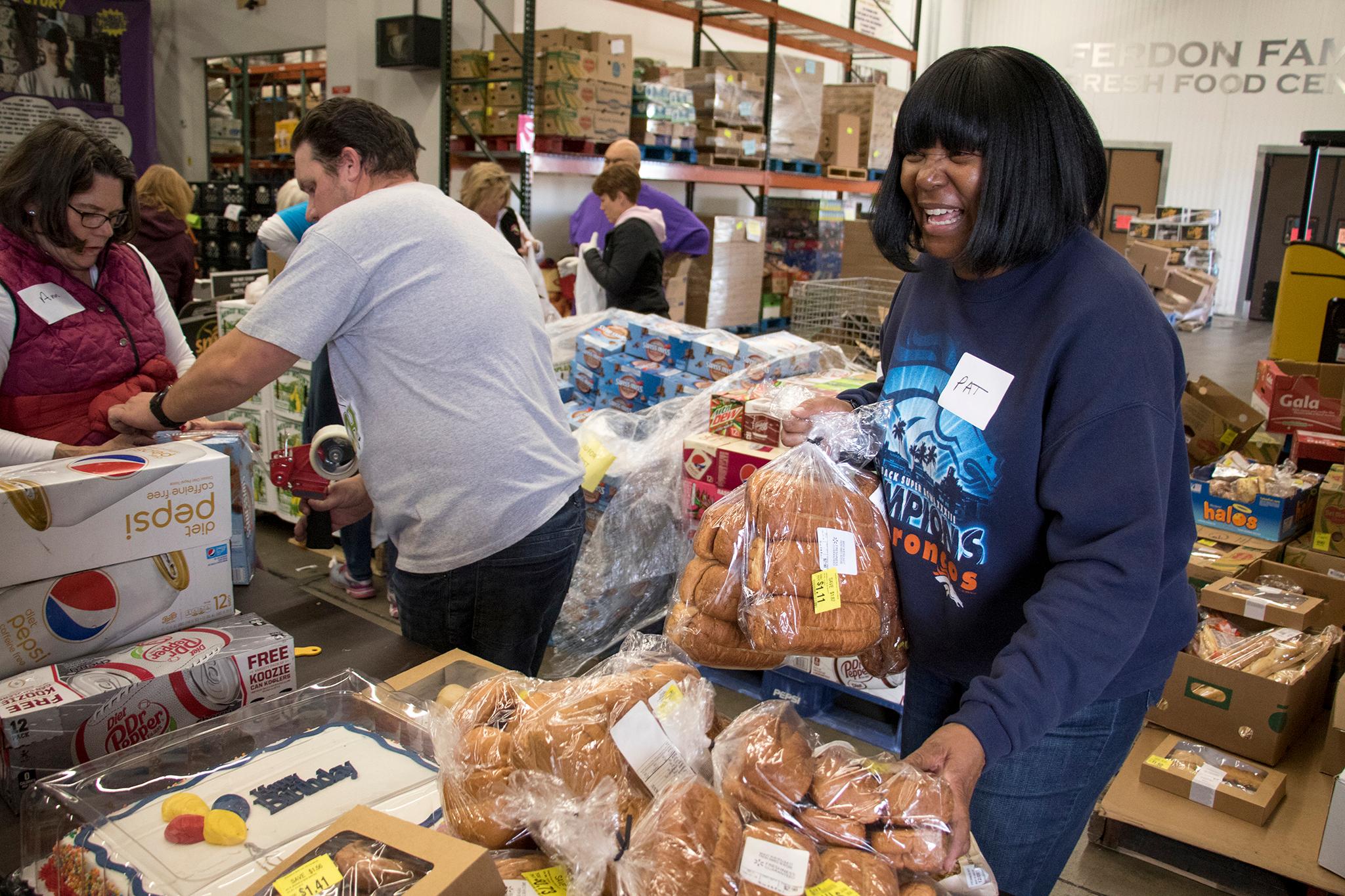
Brian Gonzalez started two years ago accompanying his daughter, who needed volunteer hours for school. She's now in college and he's moved to Colorado Springs, but he still comes to help lift the boxes -- each of which weighs about 30 pounds -- into seniors' carts. Gonzalez said those receiving food have taught him lessons about thankfulness and the grace it takes to ask for help when you need it.
"When I started I thought I was here helping others," Gonzalez said. "The more I volunteer, the more I see they help me.
'They put life in perspective for me."
The Saturday of the December distribution, food bank staff had strung caution tape to guide a snaking line of seniors, some leaning on walkers or canes. The bright yellow of the tape added to a convivial mood. Volunteers and seniors exchanged hugs and holiday greetings. Anaya-Pancetti said she has learned a few words of Russian from Eastern European refugees who are among the regulars picking up food. Friends, family and colleagues continue to accompany her when she volunteers.
"I don't do this by myself," she said.
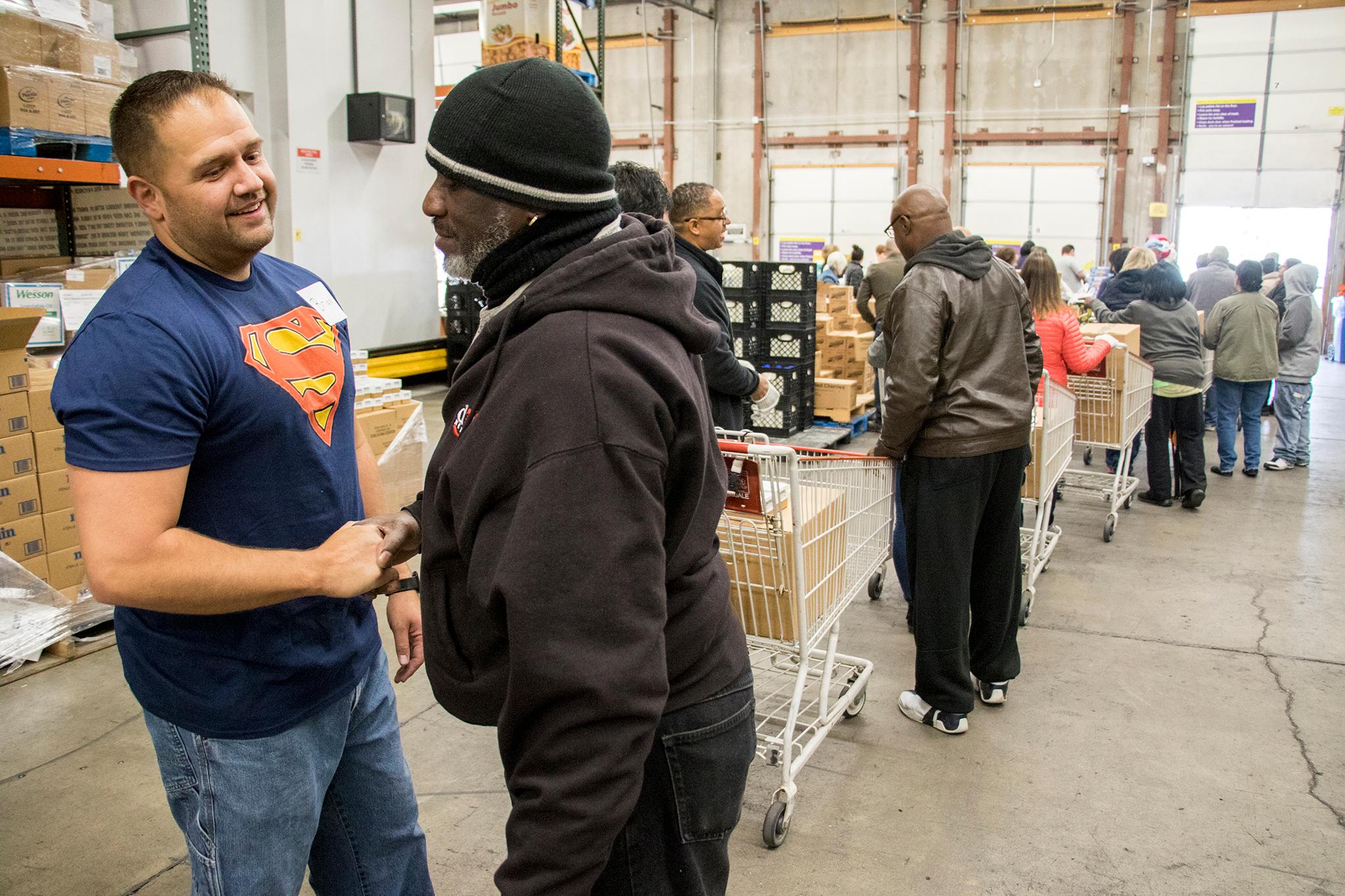
It was as if people were around a dining room table, bonding over food.
"Food is a physical need," said Hines, of Jewish Family Service. "But it's also an emotional need."
At Hunger Free Colorado, Agar described a caller who reached the hotline last year. The caller described her empty refrigerator and asked for a list of nearby pantries. A food navigator pressed for information and discovered the caller was 100. The navigator also determined the called was eligible for SNAP and helped her apply.
This year, the Hunger Free staff sent her a card for her 101st birthday.
Correction: A previous version incorrectly stated the number of evenings a month that the Jewish Family Service pantry is open. It is open three days a week and one evening a month.

